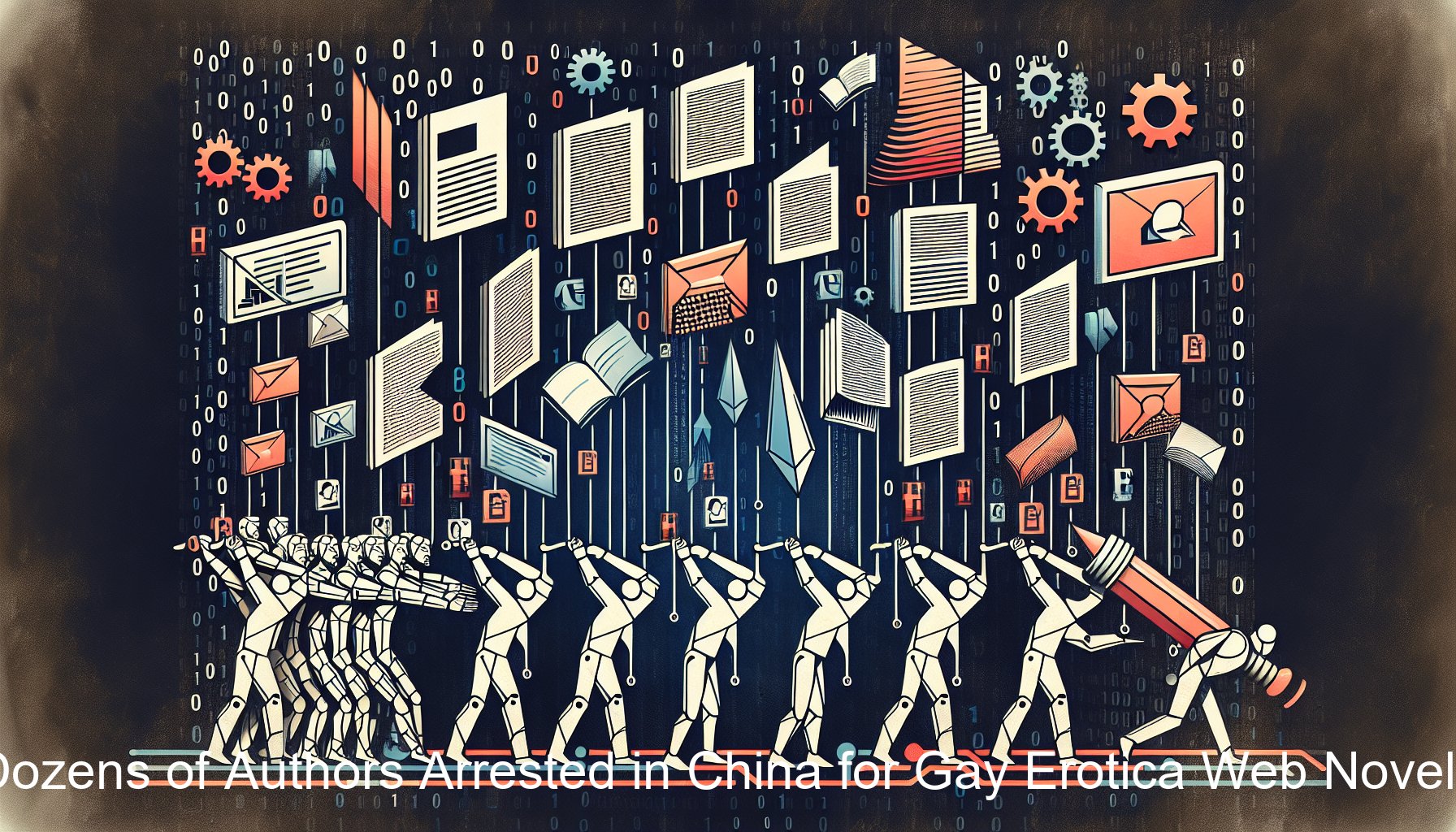China’s strict censorship laws have once again come under the spotlight as dozens of writers were arrested over the publication of gay erotic online novels. The writers, most of whom are women, were taken into custody for allegedly violating the country’s obscenity laws that prohibit the production, sale, and distribution of pornographic materials.
The novels, known as “danmei” or “Boys’ Love,” are a popular genre in the country, featuring romantic and often sexually explicit relationships between male characters. The genre, which originated in Japan, has a strong following in China, particularly among young women.
The arrests have sparked outrage among many Chinese citizens and international human rights groups, who argue that the move is a violation of free speech and an attempt to suppress the LGBTQ+ community. In contrast, Chinese authorities argue that the novels are harmful to social morality and that they are simply enforcing the law.
“The police have the responsibility to maintain social morality and public order,” a spokesperson for the Chinese government said. “These novels are full of obscene content, which is against our country’s laws.”
The crackdown on danmei novels is part of a broader effort by the Chinese government to tighten control over online content. In recent years, the government has implemented strict regulations on video games, movies, and social media, citing concerns about the impact of these mediums on the mental health of young people and the preservation of traditional values.
The authors of danmei novels, however, argue that their works are a form of artistic expression and that they should be protected under the law. They also point out that the novels serve an important role in promoting representation and acceptance of the LGBTQ+ community in a country where homosexuality is still heavily stigmatized.
“These novels are more than just erotic stories. They are about love and acceptance,” one author, who wished to remain anonymous, told reporters. “By banning these novels, the government is denying us the right to tell our stories.”
The arrests have also raised concerns about the use of AI in enforcing censorship laws. According to reports, the police used advanced AI technology to analyze and identify obscene content in the novels. Critics argue that this use of AI is a dangerous precedent that could potentially be used to suppress dissent and control public discourse.
“AI technology should be used to promote progress and innovation, not to restrict freedom of speech,” said Liu Xiaobo, a Chinese dissident and Nobel Peace Prize laureate. “This is a clear example of how technology can be used to enforce authoritarian rule.”
While the Chinese government continues to defend its actions, the international community is watching closely. As the use of AI technology becomes more prevalent in law enforcement, the debate over its ethical implications and potential misuse is likely to intensify.
In the end, the arrests serve as a stark reminder of the challenges facing writers, artists, and activists in China. Even as technology opens up new avenues for expression and communication, it also presents new tools for state control and censorship. Despite these challenges, many in the danmei community remain undeterred, vowing to continue writing and sharing their stories.
“We will not be silenced,” said one writer. “Our stories are important, and we will continue to tell them, no matter the cost.”
